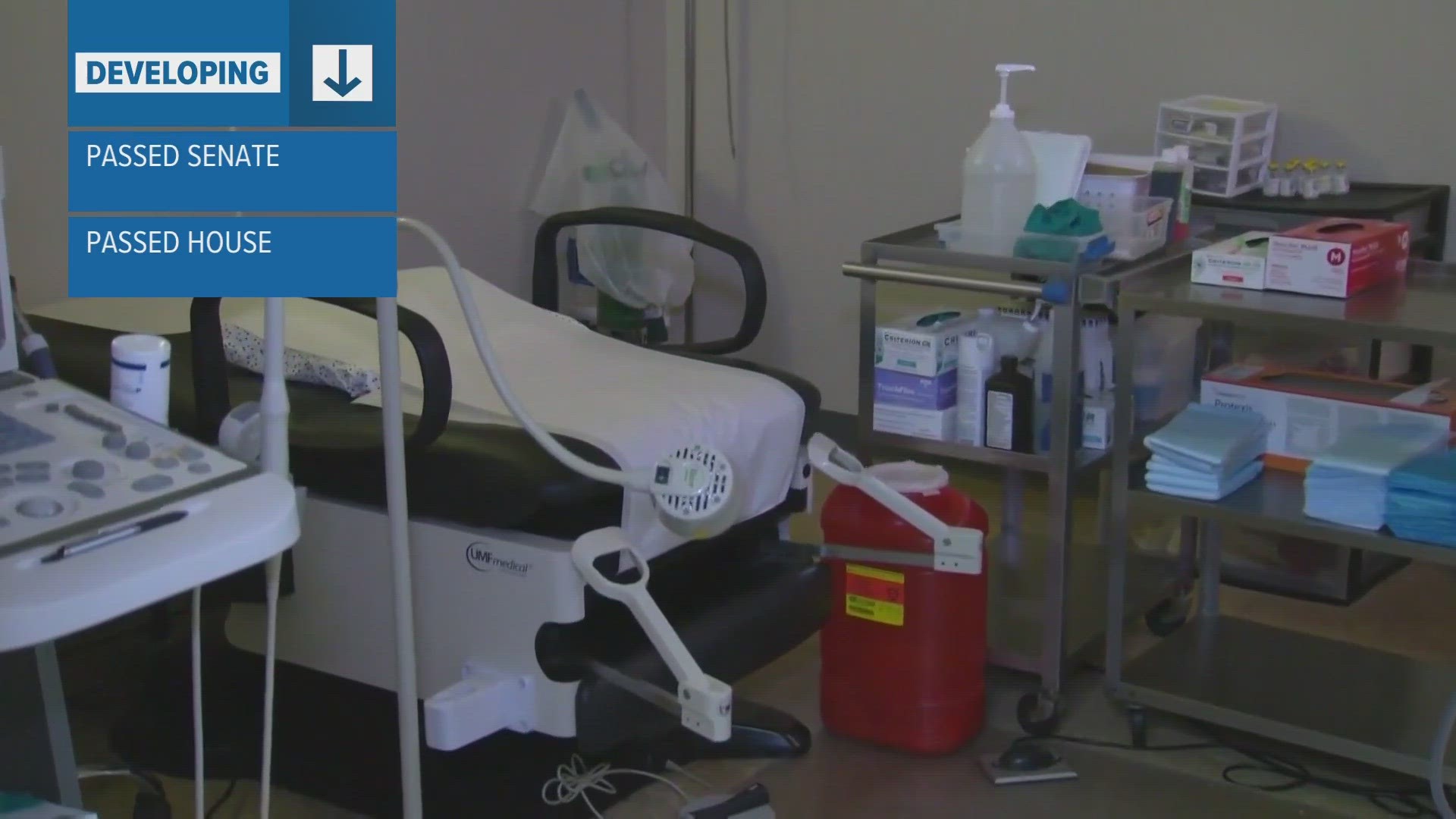GREENSBORO, N.C. — There are lots of questions floating around as lawmakers in Raleigh debate a possible ban on abortion after 12 weeks. We're going to answer several of your top questions one by one.
"Where does the bill stand right now?"
The state Senate passed the bill late Thursday. This comes after the House passed it earlier this week. Governor Roy Cooper says he will veto the bill. But Republicans have a supermajority in the General Assembly and will likely override the Governor's veto. Meaning the ban is likely to become law very soon.
"How did Republicans decide on 12 weeks? Why not a full ban?"
Here's one of the bill's sponsors, Senator Joyce Krawiec from Forsyth and Stokes County.
“Since Roe was decided in 1970, there have been countless medical achievements that have made it possible for babies to survive earlier than the viability standard set by Roe,” Krawiec said. “It's time for North Carolina to take the next step forward in honoring the sanctity of human life. We look at what North Carolinians have said. This is where most of them come down. 57% percent have said 12 weeks is where it should be.”
We tracked that poll down to the Carolina Partnership for Reform. They are a conservative learning group that surveyed 500 people. The non-partisan Meredith College surveyed more than 900 people and found the opposite. 57 percent of respondents either wanted to expand abortion beyond the current 20-week limit or maintain the law so abortion can be accessed up until 20 weeks. Only 9 percent of people surveyed said they wanted to make abortion illegal after 15 weeks.
So that's the timeline for when women can get an abortion, but another viewer wants to know:
"How does it change the process of getting an abortion?"
For starters to get the abortion pill the bill follows the current state law, a doctor would have to examine a woman in person. Telemedicine over the Internet doesn't count. The doctor also must screen to make sure the woman isn't being forced into an abortion.
Here's where things change with the bill: it becomes illegal for an abortion pill manufacturer or supplier to mail the drug directly to a pregnant woman without a plan in place for her to take it with the doctor's guidance. It also becomes illegal for anyone to advertise on the internet how to work around these requirements and get the pill easier. Anyone caught doing that would have to pay up to $5,000 per advertisement.
The bill also changes some rules about consent for abortion. Under this plan, the doctor must get informed consent at least 72 hours before the abortion. If the patient is a minor, their guardians must sign off.
Also except for cases of a medical emergency, the doctor must give a real-time view of the fetus to the woman at least four hours before the abortion is performed. The doctor must display the images in a place where the woman can see them and explain what is on the screen. The woman does have the right to refuse to hear the explanation and not look at the screen, but they have to sign a certificate saying this process was done.
The doctor also has to provide materials written by the state Department of Health and Human Services outlying other options for the woman - including places to get pregnancy care and how to find an adoption agency. The brochures would also show what a fetus looks like when the abortion would be performed. The law is very clear that "the materials shall be objective, nonjudgmental, and designed to convey only accurate scientific information about the unborn child at the various gestational ages."
"What is a fetus like at 12 weeks old?"
According to the Mayo Clinic, at 12 weeks the fetus is a little bit bigger than George Washington is on the dollar bill.
The fetus is starting to develop fingernails. And the face is getting a more chiseled profile. The organs and bones are also formed. And by 12 weeks, you should be able to hear the fetus's heartbeat.
"How often do people get abortions after 12 weeks?"
The CDC tracks abortion records across the country. In 2020 in North Carolina, there were 29,636 reported abortions. 94 percent of them were performed before or at week 12. Meaning 1,896 abortions were performed after week 12 and could possibly be impacted by this proposed law. Possibly because there are still certain exceptions. Abortions in the case of rape or incest will be allowed for up to 20 weeks. Abortions for life-limiting anomalies to the baby will be allowed for up to 24 weeks. And there would be no time limit on abortions if the mother's life is at risk.
It's hard to know if these exceptions would have impacted the women getting abortions after 12 weeks because the CDC does not track the reason people abortions by the week that they get them.
"Could women still go to other states for an abortion?"
Unlike new abortion restrictions in other parts of the country, there is nothing in this bill that would try to prohibit women from leaving North Carolina for an abortion. As for where women would probably go: abortion is still legal in South Carolina up until 22 weeks and in Virginia up through week 26.
Remember this bill isn't law yet. Governor Roy Cooper has said he plans to veto it. It will then have to pass a veto override vote which is expected since Republicans have the supermajority in Raleigh. As this process plays out we're sure more questions will pop up. If there's something you want to know about the abortion bill, text us. It's 336-379-5775.

